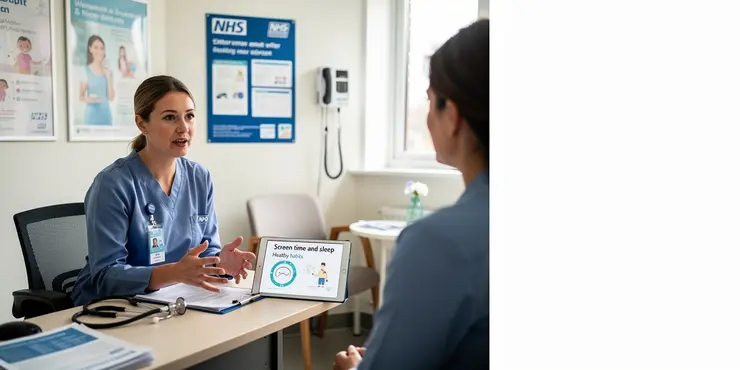
Find Help
More Items From Ergsy search
-
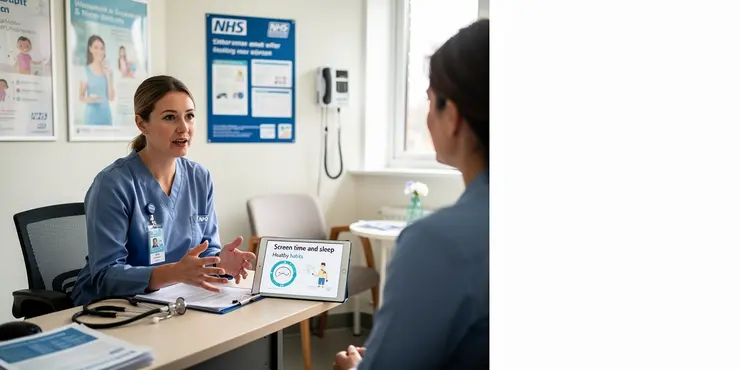
Does screen time impact REM sleep?
Relevance: 100%
-
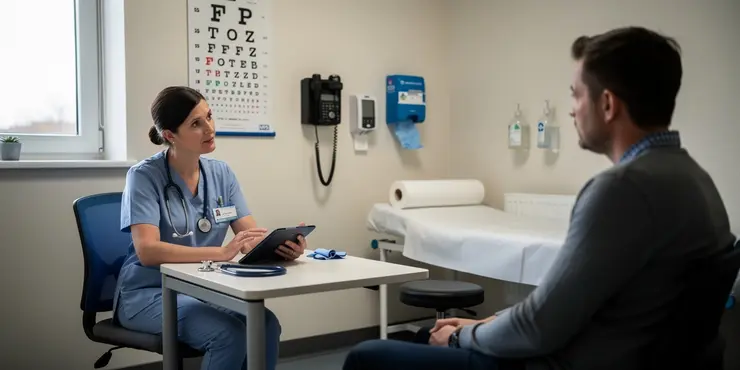
Study Shows Link Between Screen Time and Sleep Quality
Relevance: 57%
-
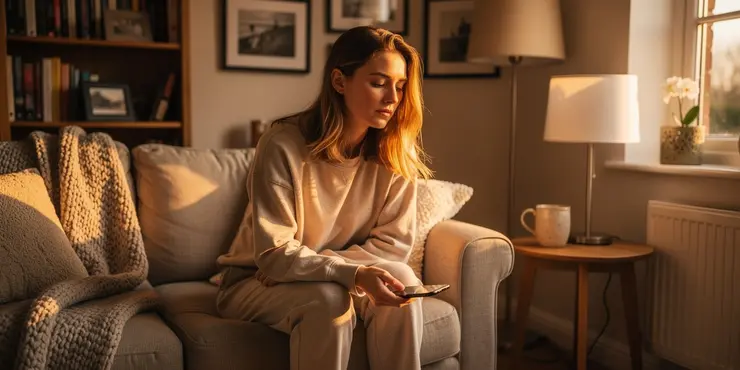
Can reducing screen time improve sleep quality?
Relevance: 55%
-
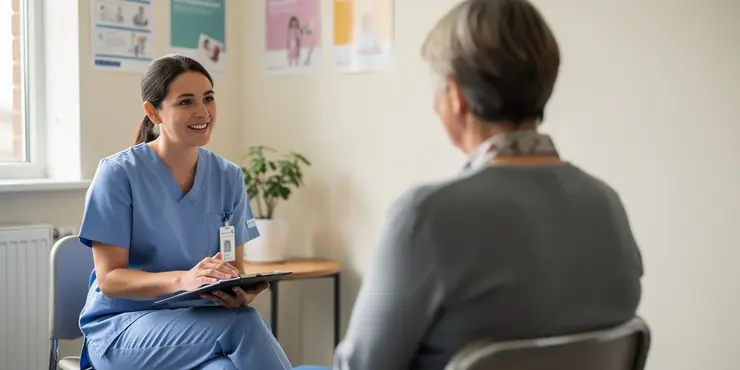
Does screen time affect both sleep onset and sleep maintenance?
Relevance: 53%
-
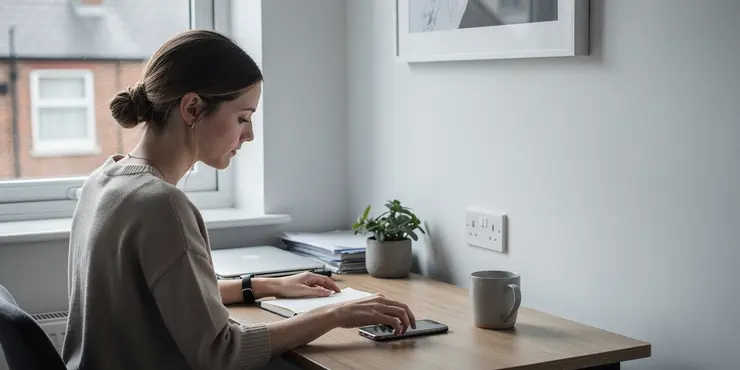
How does screen time affect sleep quality?
Relevance: 52%
-
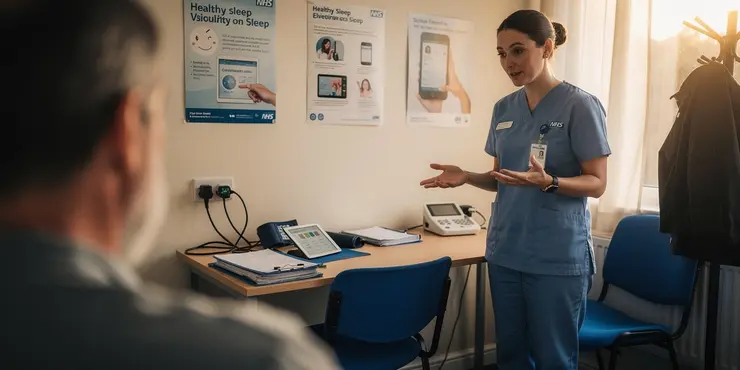
What is the main finding of the study linking screen time to sleep quality?
Relevance: 52%
-
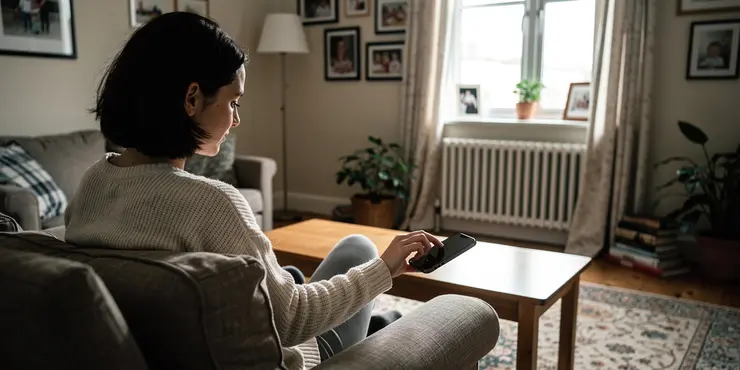
Are there any screen time guidelines recommended for improving sleep?
Relevance: 52%
-

Is there a difference in screen time impact on sleep between weekdays and weekends?
Relevance: 51%
-
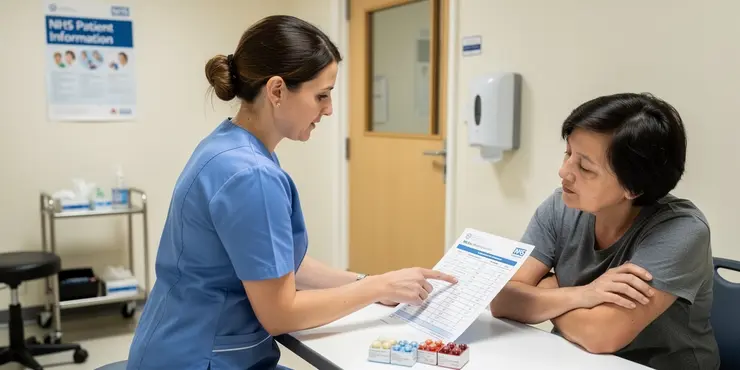
What are some tips for reducing screen time to improve sleep?
Relevance: 50%
-
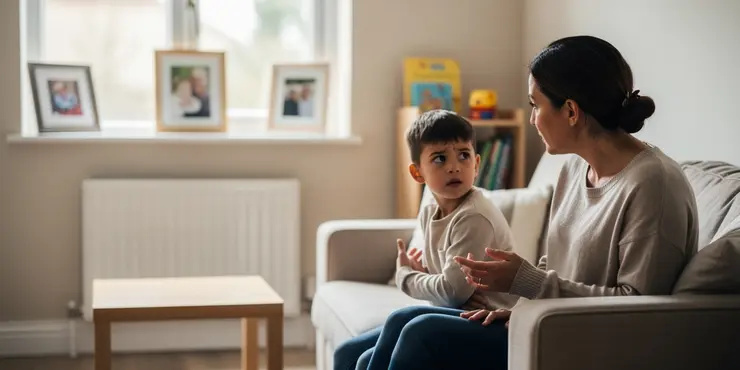
What is the role of parental monitoring in children's screen time and sleep?
Relevance: 49%
-
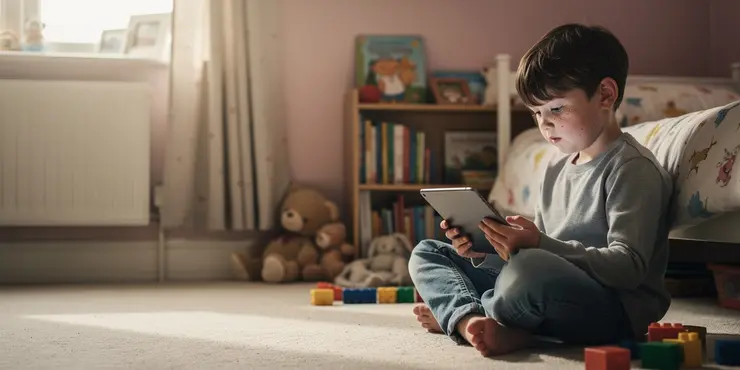
Are children more affected by screen time in relation to sleep than adults?
Relevance: 49%
-
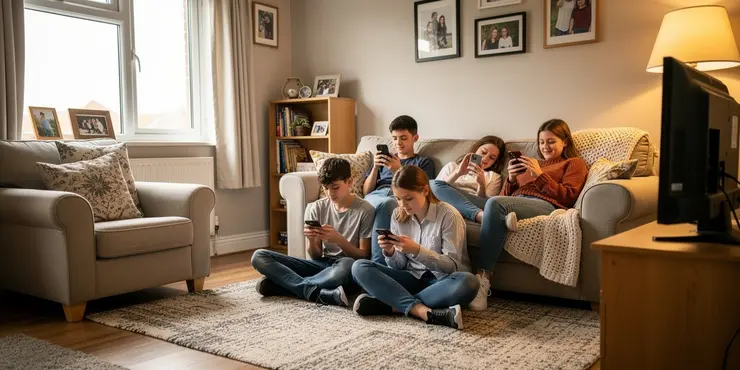
What demographic showed the most significant change in sleep quality due to screen time?
Relevance: 46%
-
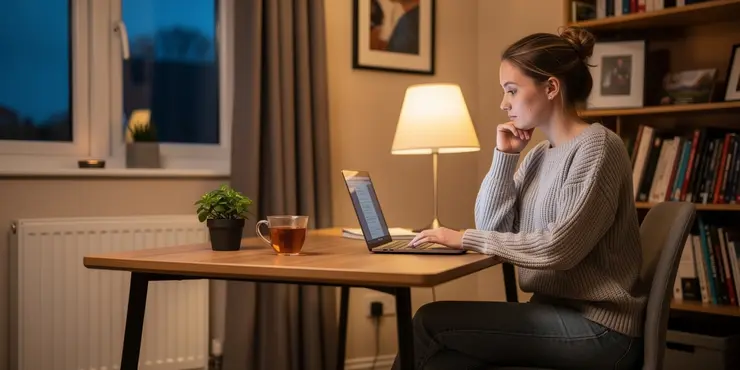
Is blue light from screens a factor in affecting sleep quality?
Relevance: 40%
-
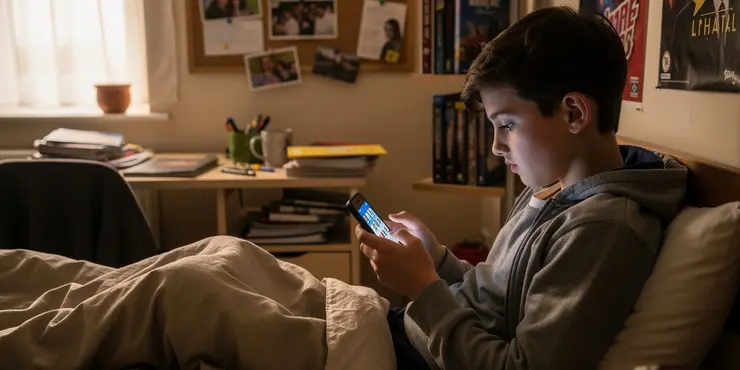
How does screen time before bed specifically affect adolescents?
Relevance: 40%
-
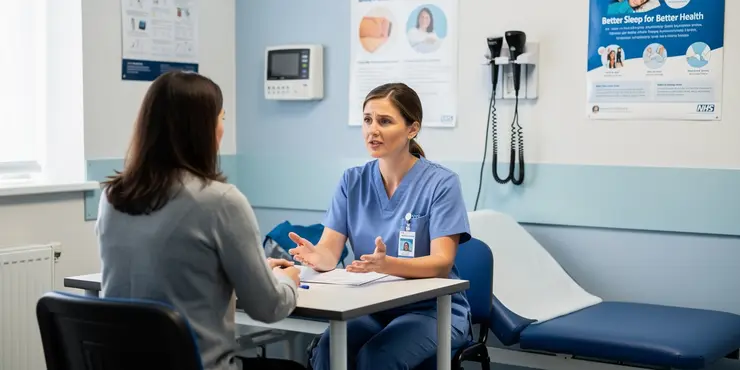
Can alcohol worsen sleep apnea?
Relevance: 37%
-
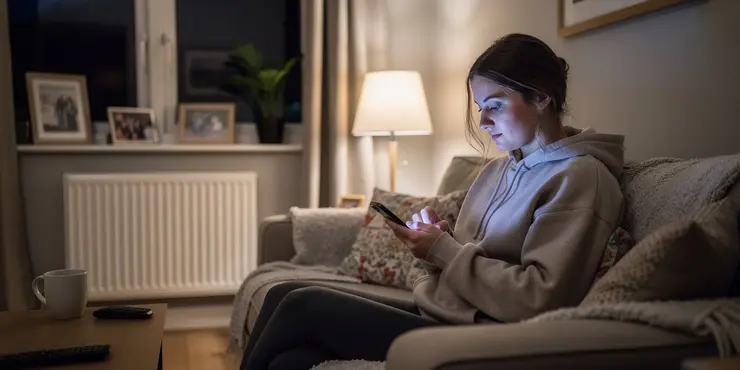
What are some long-term effects of poor sleep quality linked to screen time?
Relevance: 35%
-
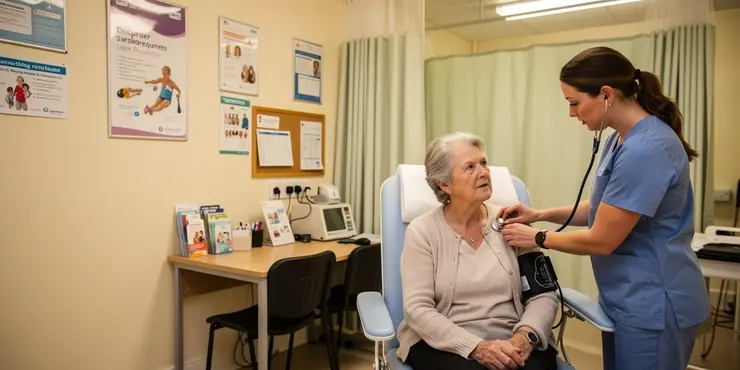
Is it safe to sleep after a concussion?
Relevance: 28%
-
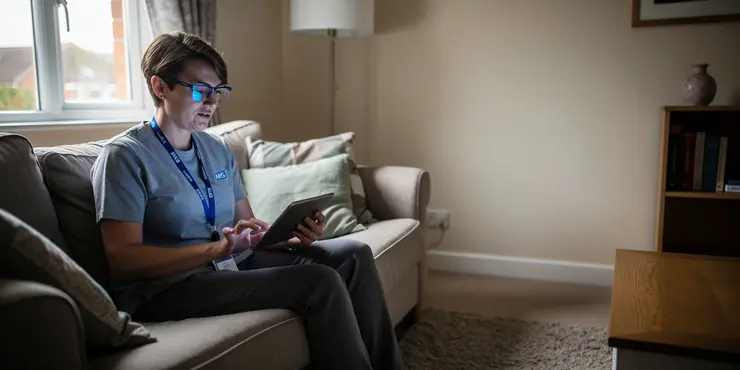
Do mitigation strategies like blue light glasses help improve sleep quality?
Relevance: 28%
-
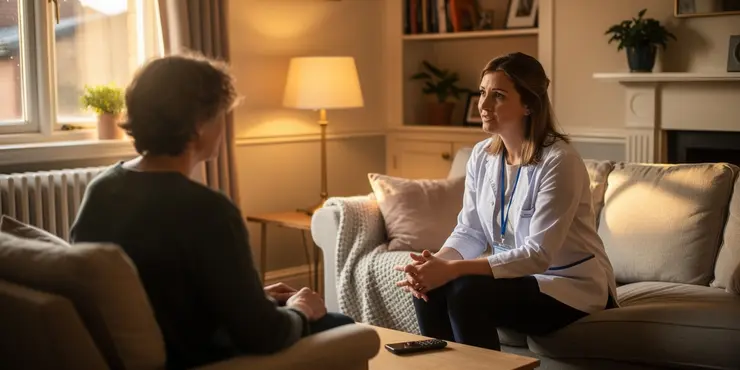
Top Tips to Help You Get a Good Nights Sleep
Relevance: 28%
-
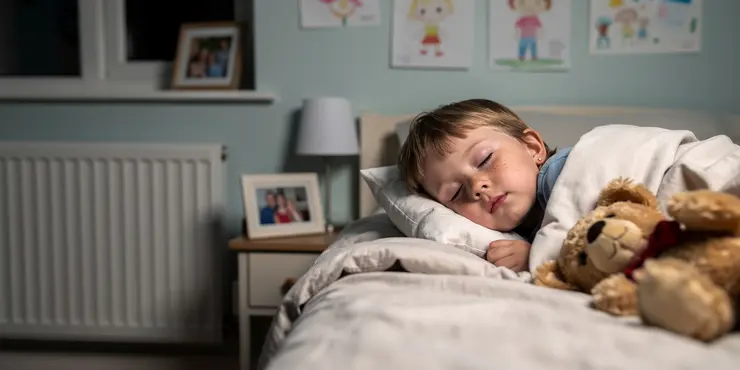
The Importance of Sleep for All Ages
Relevance: 27%
-
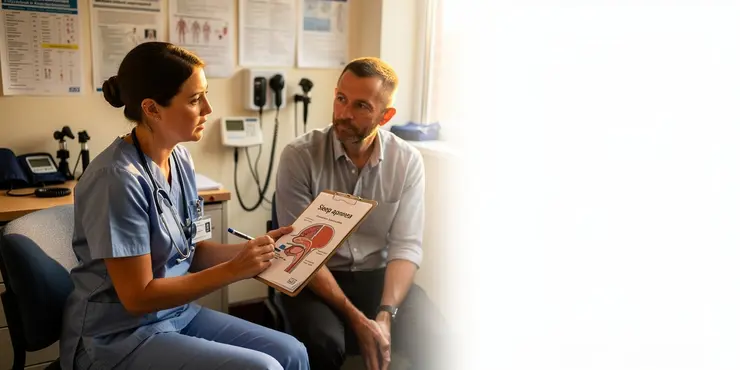
What is sleep apnoea?
Relevance: 25%
-
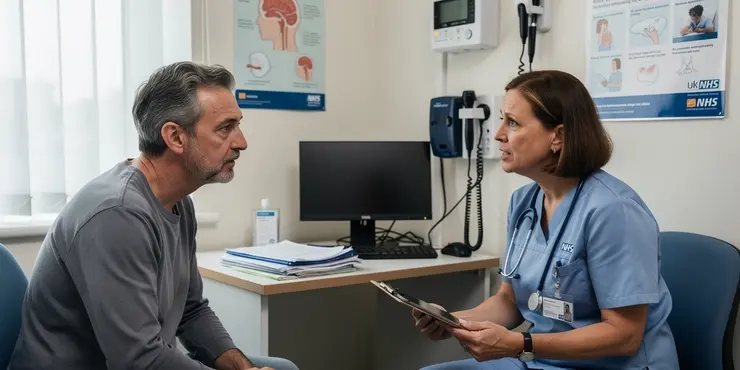
What is sleep apnea?
Relevance: 25%
-
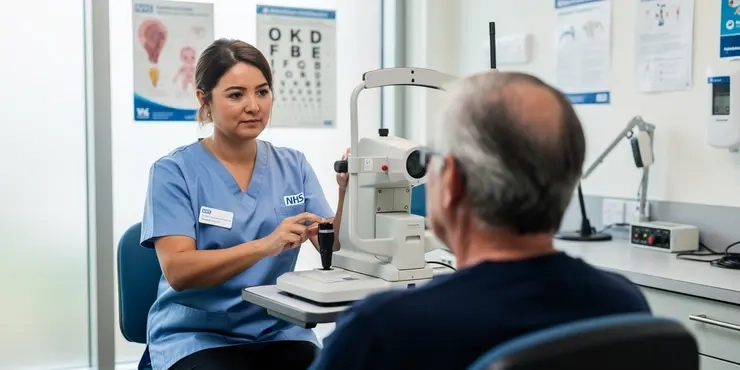
Derbyshire Diabetic Eye Screening - Diabetic Eye Screening
Relevance: 24%
-
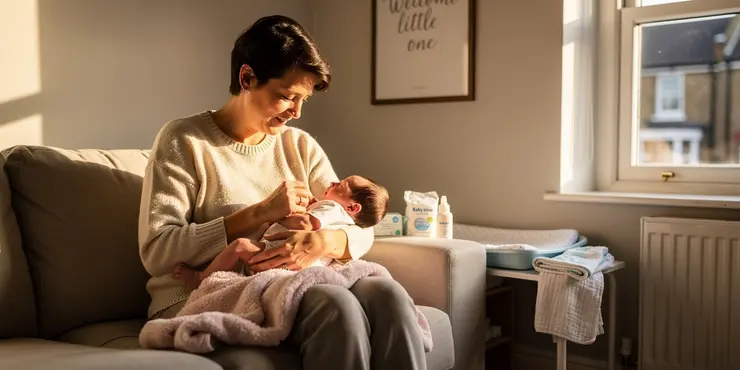
Are baby sleep pillows safe?
Relevance: 24%
-
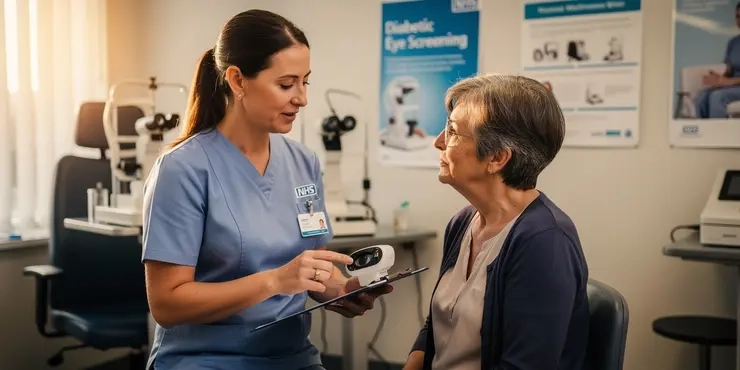
Derbyshire Diabetic Eye Screening - Your Screening Appointment
Relevance: 24%
-
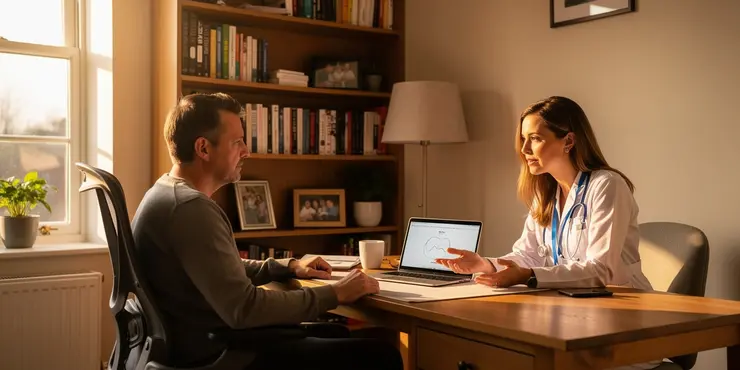
How is sleep apnea diagnosed?
Relevance: 24%
-
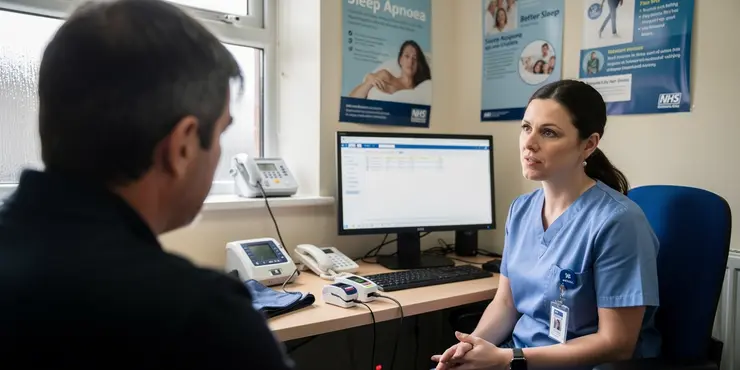
How common is sleep apnea?
Relevance: 24%
-
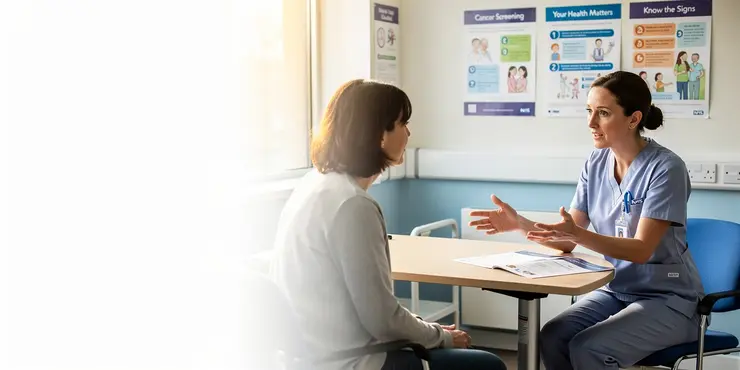
What is cancer screening?
Relevance: 24%
-

What are risk factors for developing sleep apnea?
Relevance: 24%
-

Cervical screening: Q&A | NHS
Relevance: 24%
-
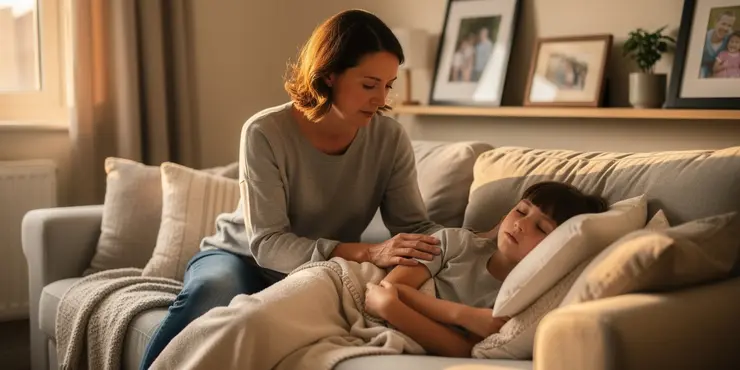
Is it safe to sleep after a concussion?
Relevance: 24%
-

What lifestyle changes can help manage sleep apnea?
Relevance: 24%
-

AI Breast Cancer Screening in the UK
Relevance: 23%
-
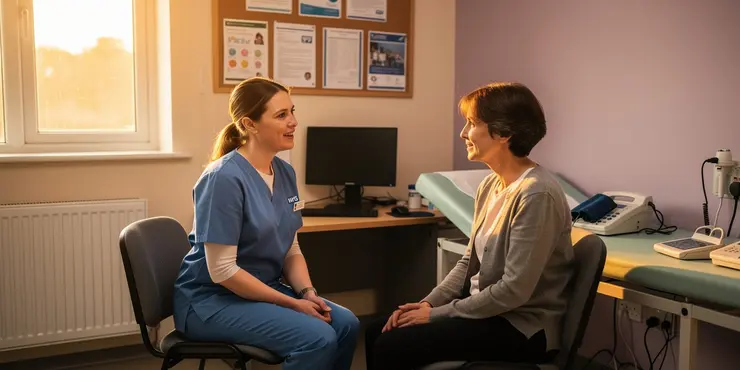
Why is sleep apnea dangerous?
Relevance: 23%
-
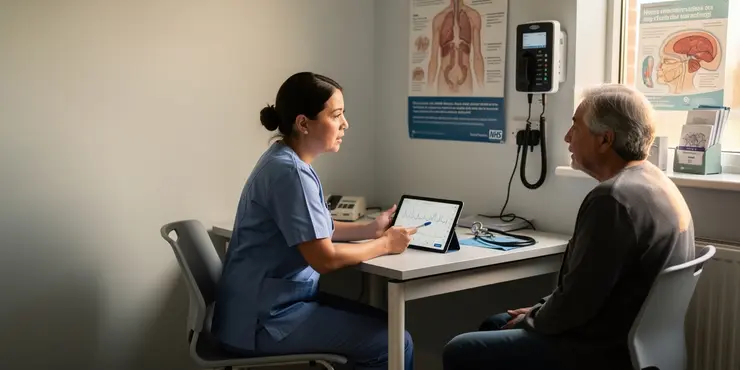
Can sleep apnea be cured?
Relevance: 23%
-
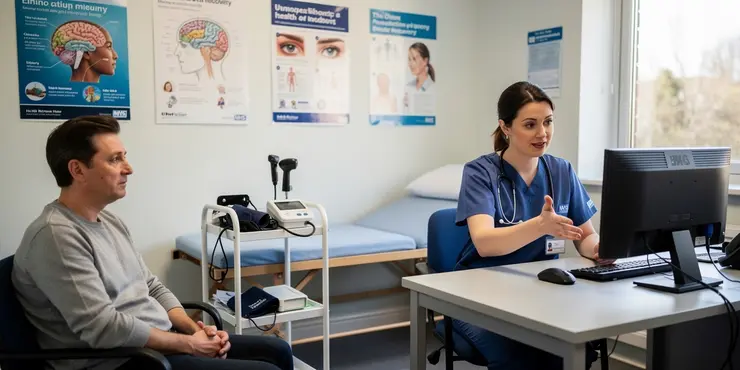
Should people with a concussion avoid screens and technology?
Relevance: 23%
-

How do I maintain my mosquito screens?
Relevance: 23%
-
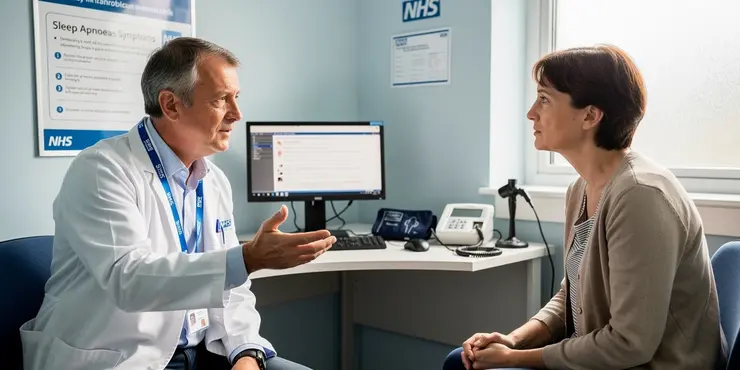
What are common symptoms of sleep apnea?
Relevance: 23%
-
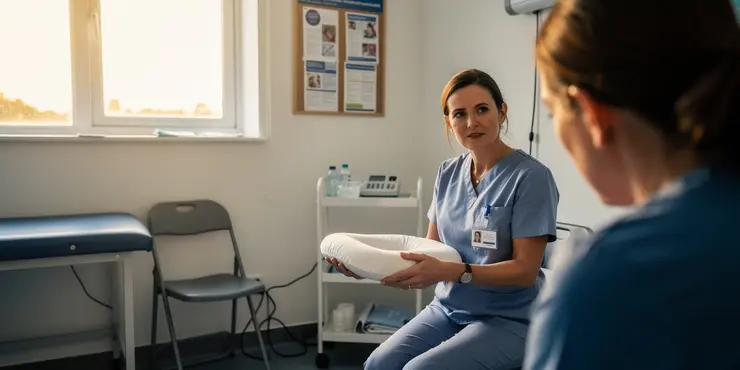
Are there any benefits to using baby sleep pillows?
Relevance: 23%
-
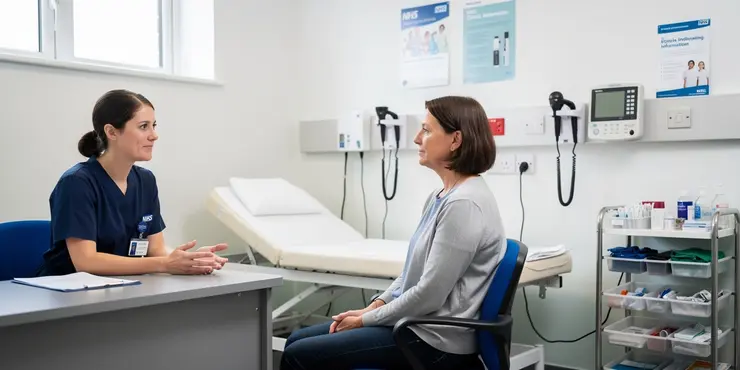
What is complex sleep apnea syndrome?
Relevance: 23%
Introduction to Screen Time and REM Sleep
In today's digital age, screen time has become an integral part of daily life for many people in the UK. From smartphones to laptops, screens are everywhere. However, there is growing concern about the impact of screen time on sleep, particularly REM (Rapid Eye Movement) sleep, which is a crucial part of the sleep cycle associated with dreaming and cognitive functions. This article explores how screen time may affect REM sleep and why this is important for overall health.
The Importance of REM Sleep
REM sleep is one of the five stages of the sleep cycle and occurs multiple times during a typical night's rest. It is essential for emotional regulation, memory consolidation, and overall brain health. During REM sleep, the brain is highly active, and it is thought to play a significant role in processing information and retaining memories. Disruptions to REM sleep can lead to issues such as increased stress, difficulty concentrating, and impaired memory.
How Screen Time Affects Sleep Patterns
Excessive screen time, especially before bed, can interfere with the body's natural sleep patterns. One major factor is the blue light emitted from screens, which can suppress the production of melatonin, a hormone that regulates sleep-wake cycles. Reduced melatonin levels can make it more difficult to fall asleep and affect the overall quality of sleep, including REM sleep. Additionally, engaging content on screens can be stimulating, making it harder for the brain to wind down before bed.
Impact on REM Sleep
The effects of screen time on REM sleep have been the subject of various studies. Some research indicates that individuals who engage in screen use before bed may experience reduced REM sleep duration and quality. This can be particularly concerning given the mental health implications associated with poor REM sleep. Furthermore, interruptions in REM sleep can lead to feelings of fatigue and reduced cognitive performance the following day.
Recommendations for Reducing Impact on Sleep
To mitigate the negative effects of screen time on REM sleep, experts recommend several strategies. These include limiting screen use to at least one hour before bedtime and using features like night mode or blue light filters on devices. Establishing a bedtime routine that encourages relaxation and winding down, such as reading a book or taking a warm bath, can also help prepare the body for restful sleep. Moreover, creating a sleep-friendly environment by keeping the bedroom dark and cool may enhance sleep quality.
Conclusion
While screens are an unavoidable part of modern life, being mindful of screen time and its potential impact on REM sleep is important for maintaining healthy sleep habits. By understanding the relationship between screen exposure and sleep quality, individuals in the UK can make informed choices to ensure they get the restorative rest that is vital for their well-being.
Introduction to Screen Time and REM Sleep
Today, many people in the UK use screens a lot. We use phones and computers every day. But using screens, especially at night, can affect our sleep. REM sleep is a special kind of sleep that helps us dream and think well. This article talks about how using screens might change REM sleep and why it is important for staying healthy.
Why REM Sleep is Important
REM sleep is one part of the sleep cycle. It happens many times during the night. REM sleep helps control feelings and remember things. It is very important for our brain. When we don't get enough REM sleep, we might feel stressed, and it might be harder to think clearly or remember things.
How Screen Time Changes Sleep
Using screens a lot, especially before bed, can change how we sleep. Screens give off blue light. This light can stop our body from making melatonin. Melatonin is a hormone that helps us sleep. Without enough melatonin, it can be hard to fall asleep, and our sleep might not be as good, including REM sleep. Also, exciting things on screens can make it hard for our brain to relax before bed.
Effects on REM Sleep
Studies show that using screens before bed can make REM sleep shorter and not as good. This can be bad for our mental health. If we don’t get good REM sleep, we might feel tired and not be able to think well the next day.
Tips to Help Sleep Better
Here are some ways to help sleep better and protect REM sleep. Try to stop using screens at least one hour before bed. Use night mode or blue light filters on your devices. Make a bedtime routine to help you relax, like reading a book or taking a warm bath. Keep your bedroom dark and cool to help you sleep well.
Conclusion
We can’t avoid screens, but we can think about how they affect our sleep. If we know how screens change our sleep, we can make better choices. This helps us get the good sleep we need to feel and think well each day.
Frequently Asked Questions
What is REM sleep?
REM (Rapid Eye Movement) sleep is a phase of the sleep cycle characterized by rapid movements of the eyes, low muscle tone, and vivid dreams. It is considered essential for cognitive functions like memory consolidation.
Does screen time before bed affect REM sleep?
Yes, excessive screen time before bed, especially from devices emitting blue light, can interfere with REM sleep by delaying its onset and reducing its duration.
How does blue light from screens impact sleep?
Blue light from screens can suppress the production of melatonin, a hormone that regulates sleep, making it harder to fall asleep and affecting overall sleep quality, including REM sleep.
Can reduced REM sleep affect cognitive performance?
Yes, reduced REM sleep can impair cognitive functions such as memory, problem-solving, and emotional regulation, as REM sleep is crucial for these processes.
Are all types of screen activities equally disruptive to sleep?
No, activities that are more stimulating, such as playing video games or watching thrilling movies, are likely more disruptive to sleep than less engaging activities.
How long before bed should screen time be reduced to improve sleep?
Experts recommend reducing screen time at least 30 minutes to an hour before bedtime to minimize its impact on sleep quality.
Do all individuals experience the same impact on REM sleep from screen time?
No, the impact of screen time on REM sleep may vary among individuals due to factors like sensitivity to blue light, age, and sleep habits.
Can using screen filters help reduce the impact on sleep?
Yes, using blue light filters or night mode settings on devices can help reduce the impact on sleep but may not completely eliminate it.
How does the duration of screen time affect sleep?
Longer durations of screen time, especially close to bedtime, are generally associated with greater negative effects on sleep quality, including REM sleep.
Is REM sleep the only sleep stage affected by screen time?
No, while REM sleep can be affected, excessive screen time can also impact other stages of sleep, leading to overall poorer sleep quality.
Can wearing blue-light blocking glasses improve sleep quality?
Blue-light blocking glasses may help reduce the impact of screen exposure on sleep, but results can vary among individuals.
Are there age-related differences in screen time's impact on REM sleep?
Yes, younger individuals, especially children and adolescents, might be more sensitive to the effects of screen time on REM sleep compared to adults.
Can improved sleep habits mitigate the effects of screen time on REM sleep?
Yes, maintaining good sleep hygiene practices, such as a regular sleep schedule and nighttime routines, can help mitigate the negative effects of screen time on sleep.
Is screen brightness a factor in sleep disruption?
Higher screen brightness can increase the likelihood of disrupting sleep as it can more effectively suppress melatonin production.
Do all screens have the same impact on sleep?
Screens that emit high levels of blue light, such as those on smartphones and tablets, tend to have a greater disruptive impact on sleep compared to e-ink screens or printed materials.
Can bedtime screen time lead to long-term sleep issues?
Chronic exposure to screens before bed can contribute to long-term sleep issues, including difficulties with initiating sleep and experiencing restorative sleep cycles.
Are there any benefits to moderate screen use before bed?
For some, moderate screen use such as reading on an e-reader with minimal blue light might not significantly disrupt sleep, but more interactive or bright screen use is generally discouraged.
Do video games have a different impact on sleep compared to social media?
Yes, video games can be more stimulating and engaging compared to passive activities like browsing social media, potentially leading to greater disruptions in sleep.
Is it possible to reverse the effects of screen time on REM sleep?
Yes, by reducing screen time before bed and improving sleep hygiene, individuals can often reverse the negative effects on REM sleep over time.
Can exercising during the day counteract the negative effects of screen time on sleep?
Regular physical activity can improve overall sleep quality, which may help counteract some negative effects of screen time, but it doesn’t completely eliminate them.
What is REM sleep?
REM sleep is a part of our sleep cycle. REM stands for "Rapid Eye Movement."
When we sleep, our eyes move quickly under our eyelids.
This part of sleep is important for dreams and helps our brains work well.
To learn more about sleep, you can use picture books or watch videos with someone who can explain it to you.
REM sleep is a part of sleep where your eyes move quickly. During this time, your body is relaxed, and you have colorful dreams. REM sleep helps your brain remember things better.
Does looking at screens before bed change how well you sleep?
When you look at screens like phones, tablets, or TVs before bed, it can make it harder for your brain to rest.
This can change a special part of sleep called REM sleep, which helps you feel good the next day.
Try reading a book or listening to calm music before bed instead. It can help you sleep better.
Too much screen time before bed can be bad for sleep. The screens on things like phones and tablets give off blue light. This light can make it harder to fall into a deep sleep and can make the deep sleep shorter.
To help with this, try using things like blue light filters on your devices or take a break from screens an hour before bed.
How does blue light from screens affect sleep?
Blue light comes from phones, tablets, and computers. It can make it hard to sleep.
When you use screens before bed, it tells your brain to stay awake. This can make you sleep late or not sleep well.
Here are some tips to help you sleep better:
- Turn off screens 1 hour before bed.
- Use a night mode or blue light filter on your device.
- Try using an app that makes screen light softer.
- Read a book or listen to calm music before bed.
Screens give off blue light. This blue light can stop our body from making a special hormone called melatonin. Melatonin helps us sleep. If we don't have enough melatonin, it can be hard to fall asleep and have a good night's sleep, including the deep sleep we need.
To help improve sleep, try these tips:
- Use screen filters that block blue light.
- Limit screen time before bed.
- Make your room dark and quiet when sleeping.
- Try relaxing activities like reading a book or listening to soft music.
Can less REM sleep make it hard to think well?
When you sleep, your brain gets rest. One part of sleep is called REM sleep. It is important for your mind.
If you don't get enough REM sleep, it might affect how you think and remember things. You could forget more easily or find it hard to solve problems.
To help sleep better, try these tips:
- Go to bed at the same time every night.
- Make your room dark and quiet.
- Avoid screens before bedtime.
- Relax before sleep with a book or calm music.
Sleeping well can help your brain work better!
Yes, when you don't get enough REM sleep, it can make it harder to think clearly. You might forget things, have trouble solving problems, and feel more upset or mixed up about your emotions. REM sleep is very important for your brain to work well.
Do all screen activities affect sleep the same way?
Some things we do on screens can make it hard to sleep. But not all screen activities are the same.
If you play games, watch exciting videos, or text friends before bed, it might be harder to sleep. These activities can make your brain more awake.
Try to stop using screens at least 1 hour before bed. You can read a book or listen to calm music instead.
If you need help, you can use tools like blue light filters on your devices or apps that remind you to take breaks from screens.
Playing video games or watching exciting movies can make it hard to sleep. It is better to do calm activities before bed.
When should I stop using screens before bed to sleep better?
Try to stop looking at screens like TVs, tablets, or phones at least 1 hour before you go to sleep. This can help you sleep better.
Here are some tips to help you stop using screens before bed:
- Read a book or listen to calming music instead.
- Use an alarm clock instead of your phone to wake up.
- Ask a friend or family member to remind you.
Experts say it is good to spend less time looking at screens like phones or tablets, at least 30 minutes before going to bed. This can help you sleep better.
Does screen time affect everyone’s REM sleep in the same way?
Screen time means using a phone, tablet, computer, or TV.
REM sleep is a stage of sleep when you dream. It is important for feeling rested.
Screen time can change how much REM sleep you get.
But it does not affect everyone the same way. Some people might have less REM sleep if they use screens a lot before bed. Others might not notice a big change.
To help with sleep, try to stop using screens 1 hour before bed. You can also try reading a book or listening to quiet music to relax.
Screen time can affect sleep differently for each person. Things like age, how sensitive you are to blue light, and your sleep habits can change how it affects you.
Do screen filters help you sleep better?
Screen filters can make it easier to sleep. They change the light from screens to softer colors. This might help you feel sleepy.
You can try these things to help you sleep:
- Use screen filters on your phone or tablet at night.
- Turn off screens an hour before bed.
- Read a book or listen to calm music instead.
If you have trouble sleeping, ask an adult for help.
Yes, using blue light filters or night mode settings on devices can help you sleep better, but they may not fix everything.
Does screen time affect sleep?
Looking at screens for a long time, especially before bed, can make it harder to sleep well. It can also affect our dreams.
Try turning off screens an hour before bedtime. Doing something relaxing, like reading a book or listening to soft music, can help you sleep better.
Does screen time only change REM sleep?
No, using screens too much can mess up your sleep. It can make it hard to sleep well, not just in the dream stage called REM sleep, but in other parts of sleep too. This means your sleep might not be as good overall.
Can wearing blue-light glasses help you sleep better?
Glasses that block blue light might help you sleep better after looking at screens. But, they don't work the same for everyone.
Does screen time affect REM sleep differently depending on age?
Here is the question: Does watching screens, like TVs or tablets, before sleep change sleep for people of different ages? REM sleep is when you dream, and your brain is very busy.
If you find reading hard, you might find it helpful to:
- Use a text-to-speech tool to read the text aloud.
- Ask someone to explain any hard words.
- Take breaks if the information feels too much.
Yes, kids and teenagers can be more affected by screen time at night than grown-ups. It can change how they sleep.
Can better sleep habits help with the effects of screen time on deep sleep?
Lots of screen time before bed can make it hard to get good sleep. But, there are things you can do to help. Here are some tips:
- Try to stop using screens like phones and tablets an hour before bed.
- Read a book or listen to calm music to relax your mind.
- Make sure your bedroom is dark and quiet to help you sleep better.
These tips can help your body rest well and get deep sleep.
Yes, good sleep habits can help with sleep problems caused by too much screen time. Try to go to bed and wake up at the same time every day. This and a calming bedtime routine can help you sleep better.
Does screen brightness affect sleep?
Do bright screens make it hard to sleep?
Bright lights from screens can keep you awake. Try these tips to help:
- Use Night Mode: This makes the screen softer and less bright.
- Take Breaks: Put the screen away at least one hour before bedtime.
- Dim the Screen: Reduce the brightness settings on your device.
- Blue Light Glasses: These can help block the strong light from screens.
When the screen is too bright, it can make it harder to sleep. Bright light stops our body from making melatonin, which is the sleep hormone.
Do all screens affect sleep the same way?
Different screens can affect your sleep in different ways. Using a bright screen at night might make it harder to fall asleep.
To help you sleep better:
- Turn down the brightness of your screens in the evening.
- Try using a 'night mode' on your device if it has one. This can make the screen softer on your eyes.
- Avoid using screens for at least an hour before bedtime.
Phones and tablets have screens that show a lot of blue light. This blue light can make it harder for people to sleep. But screens like e-ink or real books do not make it hard to sleep.
If you have trouble sleeping because of blue light, you can try using blue light blocking glasses or setting your screen to night mode. You can also try reading a book instead of using a screen before bed.
Can looking at screens before bed cause sleep problems later?
Using screens a lot before bedtime can cause sleep problems. It can make it hard to fall asleep and stop you from getting good sleep.
To help with this, try:
- Using blue light glasses at night.
- Setting a regular bedtime routine.
- Turning off screens an hour before bed.
- Listening to calming music or stories.
Is it okay to use screens a little before bedtime?
Using screens like phones or tablets a little before bed can be okay. Here are some helpful tips:
- Use a "night mode" or "blue light filter" on your screen. This makes the screen light softer.
- Set a timer to remind you to stop using your screen 30 minutes before sleep.
- Read or do something relaxing before bed to help your mind calm down.
For some people, using screens a little bit, like reading on an e-reader with low blue light, may not hurt sleep much. But using screens that are bright or where you do a lot of things is usually not recommended.
Do video games and social media affect sleep differently?
Video games and social media are two things people use a lot. But do they change how we sleep in different ways?
Think about how you feel after playing video games or using social media. Does one make it harder to sleep than the other?
Here are some tips to help you sleep better:
- Try to stop using screens an hour before bed.
- Read a book or listen to calming music to relax.
- Keep your bedroom dark and quiet.
Yes, playing video games can be more exciting and fun than just looking at social media. This can make it harder to sleep well.
Can screen time change how we sleep?
Too much screen time can affect our sleep. It can make it hard to have good sleep. But we can help our sleep get better!
Here are some ways to help:
- Turn off screens 1 hour before bed.
- Keep lights dim in the evening.
- Do relaxing activities, like reading a book or drawing.
- Try to go to bed at the same time every night.
With these steps, your sleep can improve over time!
Yes, you can help make your sleep better. Try to turn off screens like TVs and phones before going to bed. Also, follow good bedtime habits. This can help fix any sleep problems over time.
Does exercise help you sleep better if you use screens a lot?
Some people think using phones, tablets, or computers can make it hard to sleep. But exercise might help! Moving your body during the day, like playing or riding a bike, can help you sleep better at night.
Try to take breaks from screens and do some fun activities. You can use tools like timers to remind you when to stop using screens. Doing puzzles or reading a book before bed can also help you relax.
Doing exercise can help you sleep better. This might help with some bad things about using screens too much, but it won’t make them all go away.
Useful Links
This website offers general information and is not a substitute for professional advice.
Always seek guidance from qualified professionals.
If you have any medical concerns or need urgent help, contact a healthcare professional or emergency services immediately.
Some of this content was generated with AI assistance. We’ve done our best to keep it accurate, helpful, and human-friendly.
- Ergsy carfully checks the information in the videos we provide here.
- Videos shown by Youtube after a video has completed, have NOT been reviewed by ERGSY.
- To view, click the arrow in centre of video.
- Most of the videos you find here will have subtitles and/or closed captions available.
- You may need to turn these on, and choose your preferred language.
- Go to the video you'd like to watch.
- If closed captions (CC) are available, settings will be visible on the bottom right of the video player.
- To turn on Captions, click settings .
- To turn off Captions, click settings again.
More Items From Ergsy search
-

Does screen time impact REM sleep?
Relevance: 100%
-

Study Shows Link Between Screen Time and Sleep Quality
Relevance: 57%
-

Can reducing screen time improve sleep quality?
Relevance: 55%
-

Does screen time affect both sleep onset and sleep maintenance?
Relevance: 53%
-

How does screen time affect sleep quality?
Relevance: 52%
-

What is the main finding of the study linking screen time to sleep quality?
Relevance: 52%
-

Are there any screen time guidelines recommended for improving sleep?
Relevance: 52%
-

Is there a difference in screen time impact on sleep between weekdays and weekends?
Relevance: 51%
-

What are some tips for reducing screen time to improve sleep?
Relevance: 50%
-

What is the role of parental monitoring in children's screen time and sleep?
Relevance: 49%
-

Are children more affected by screen time in relation to sleep than adults?
Relevance: 49%
-

What demographic showed the most significant change in sleep quality due to screen time?
Relevance: 46%
-

Is blue light from screens a factor in affecting sleep quality?
Relevance: 40%
-

How does screen time before bed specifically affect adolescents?
Relevance: 40%
-

Can alcohol worsen sleep apnea?
Relevance: 37%
-

What are some long-term effects of poor sleep quality linked to screen time?
Relevance: 35%
-

Is it safe to sleep after a concussion?
Relevance: 28%
-

Do mitigation strategies like blue light glasses help improve sleep quality?
Relevance: 28%
-

Top Tips to Help You Get a Good Nights Sleep
Relevance: 28%
-

The Importance of Sleep for All Ages
Relevance: 27%
-

What is sleep apnoea?
Relevance: 25%
-

What is sleep apnea?
Relevance: 25%
-

Derbyshire Diabetic Eye Screening - Diabetic Eye Screening
Relevance: 24%
-

Are baby sleep pillows safe?
Relevance: 24%
-

Derbyshire Diabetic Eye Screening - Your Screening Appointment
Relevance: 24%
-

How is sleep apnea diagnosed?
Relevance: 24%
-

How common is sleep apnea?
Relevance: 24%
-

What is cancer screening?
Relevance: 24%
-

What are risk factors for developing sleep apnea?
Relevance: 24%
-

Cervical screening: Q&A | NHS
Relevance: 24%
-

Is it safe to sleep after a concussion?
Relevance: 24%
-

What lifestyle changes can help manage sleep apnea?
Relevance: 24%
-

AI Breast Cancer Screening in the UK
Relevance: 23%
-

Why is sleep apnea dangerous?
Relevance: 23%
-

Can sleep apnea be cured?
Relevance: 23%
-

Should people with a concussion avoid screens and technology?
Relevance: 23%
-

How do I maintain my mosquito screens?
Relevance: 23%
-

What are common symptoms of sleep apnea?
Relevance: 23%
-

Are there any benefits to using baby sleep pillows?
Relevance: 23%
-

What is complex sleep apnea syndrome?
Relevance: 23%


